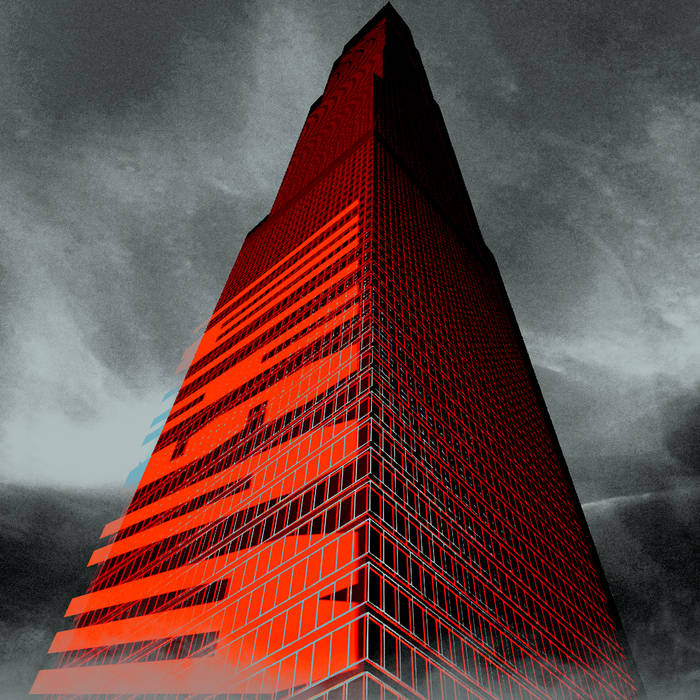019 - Wushimi Complex - The Anon Database

Lost in Neon, is a perfect combination of w u s o 命 and Yoshimi’s sounds. The minimalist melodies and dark, brooding atmospheres that Yoshimi excels at - paired with the beautiful, cinematic melodies and percussion that w u s o 命 brings to the table. The song ebbs and flows with subtle ambient passages, soaring leads that drip with a cyberpunk edge. I cannot think of a better example of what a song co-written by w u s o 命 and Yoshimi would sound like… except, it's not. It’s all Yoshimi, w u s o 命 had no part in the writing of Lost in Neon.
I went into The Wushimi Complex album thinking that all songs were co-written by w u s o 命 and Yoshimi. I noticed a slight shift in focus around track 5 compared to the first four tracks, but overall the sound is focused and offers a strong cinematic, beat driven, urban infused take on dreampunk. At no point did I realize that this was actually a split between the two artists. The first four tracks are written by Yoshimi and the last four are written by w u s o 命, and when I found this out it blew my mind.
In retrospect, with this knowledge there is a discernible difference between the two halves of the album. Yoshimi’s compositions have a much more subtle and dark feel to them. They are constructed around a ternary or ABA format. Where the A sections bring forward one musical idea at the start and finish of the song and are contrasted by the B material.
Take Altered City, for example. The song begins with different instruments that have had their recordings reversed. We can kind of tell what they are, but they sound foreign to our ears - familiar yet alien. All of this is done to set an eerie and tense mood, only for Yoshimi to drop an epic melody on us right around a minute in. The remainder of the song weaves in and out of the ambient and beat driven sections, taking the listener on a journey through a city where cyborgs rule the streets and humans are a dying breed.
w u s o 命’s compositions, however, are done in a linear fashion where the song will build upon itself without revisiting former ideas. They have a greater cinematic feel and have a more direct approach to the song writing.
The final track on the album, Dreampunk at Last, has a ‘closing credits’ feel to it. The track begins with a simple melody, and uses that as a launching point for the song. Various elements are added as it grows over time, yet the basic melody stays in place in the background. It's as if that is our focus point on a journey and we are seeing other elements (melodies and sound effects) pass us by on route to our destination. It's an excellent way to wrap up the album.
Despite the differences in composition style the music all fits together nicely. w u s o 命 detailed the sound he wanted on the album as “...darker, industrial, and full of rhythm. Something akin to what you would hear in a club in a dark city.” Yoshimi detailed his involvement further, “I was contacted by WUSO around Fev 2019 and he already had 3 tracks finished. We did not have a deep discussion about sound direction but think the result is something natural from what WUSO showed me first.”
As for the conception of the album, w u s o 命 explains that it “was meant to be done between No Death and myself, I already had a lot of the ideas when it came to my tracks for the record. But when No Death had to bail on the project I pivoted to someone that I wanted to hear more from, that being Yoshimi.”
I’ll be perfectly honest here. I’m glad that we got the collaboration that we did. It's like two sides to the same coin, both showing different interpretations around a central idea. w u s o 命 providing a dramatic and almost motion picturesque interpretation, while Yoshimi gives us a gloomier, grittier take. What are they interpreting? Give it a listen and decide for yourself.
Equipment Used
Yoshimi
I use Studio One for DAW and mastering. I do not own any outboard now (except the MC76 limiting comp), so all was made in my desktop PC. For this album I used a lot of synth sounds from the mid 80’s like Oberheim Xpander and Prophet VS (plugin versions) and also used u-he Diva for modern touch. Reverb is very important for my music and I use mainly VSS3 (TC Electronics) and UltraReverb (Eventide). Compressor is also essential for me and uses mainly the Brainworx townhouse Buss Compressor, I am a huge SSL fan and love it.
w u s o 命
Mixture of things. While I’m trying to implement more acoustics into my sound, mainly it’s things like FL 11 (fuck 20), Spire, Serum, Kontakt with loads of libraries, Sylenth, Reaktor, loads of things.
Acknowledgements
Large thank you’s to both Yoshimi (additional thanks for providing the answers in English, greatly appreciated) and w u s o 命 for taking the time to give very thorough answers to my questions. Additional thanks to Blissmonkey for editing and promotion and Ryan Hill for proofreading.
Comments
Post a Comment